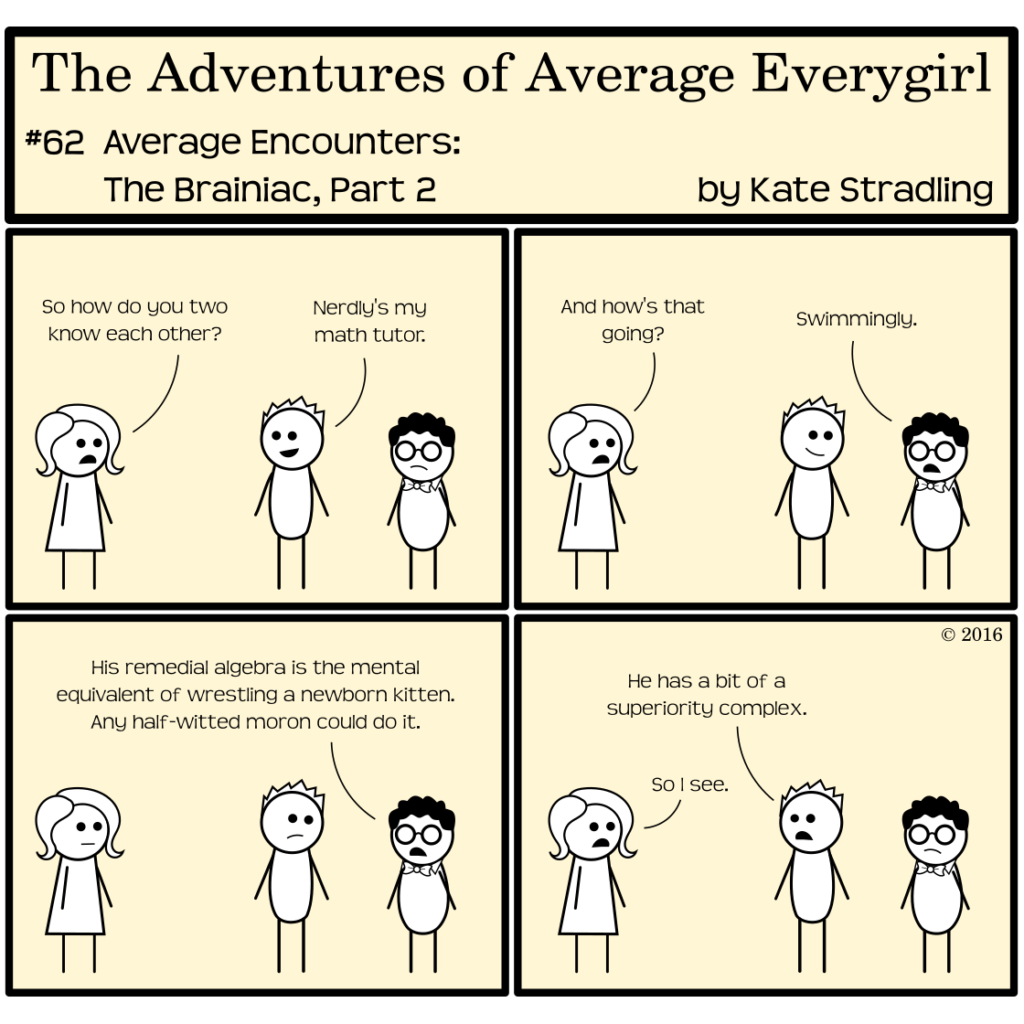
So, confession: I haven’t taken a math class since the 10th grade, which was more than half my lifetime ago. That was the year I finished Trig/College math. Instead of moving on to Calculus my junior year, I decided to drop A-hour.
It was a good choice, given that I was already sleep deprived (a condition that was officially diagnosed later that year), but it forced me to give up my “math nerd” card, which I’d been carrying since the 6th grade.
What a loss.
I really liked math once upon a time. I still like the idea of it, and sometimes I have to sit down and work through some math problems just for the heck of it. But the truth is that even though I had all the outward appearances of a math nerd for that short span from 6th to 10th grade, I was never really immersed in math.
It was just something I did for school. Once I finished the required 4 credits, I never considered going further with it. Instead, I built up my nerd-cred in music, and when that petered out, I switched to English.
I’m a Nerd-of-All-Trades, if you will.
Still, when I look at nerds in fiction, I instinctively want to align them with a love for all things mathematical. And I really can’t relate to them at all, even though I once was counted among their ranks.
Literary Nerd Math
Some fictional narratives hold math nerds on a contemptible pedestal. It’s as though in the same breath the story can acknowledge such characters as mentally superior and yet render them loathsome for that superiority. As with most stereotypes, a lot of this judgment stems more from appearance than intellectual prowess. Consider the following equations:
- Ugly + Good at Math = Shudder-worthy Nerd
- Hot + Good at Math = Hero/Love Interest
It’s sad, but true. If the nerd is a schlubby, pimple-faced mouth-breather, he has an enormous mountain to climb before he earns our respect. However, if he’s even remotely hawt, he’s immediately ship-able.
Hope on the Horizon…?
Nerd characters have come into their own in recent years, with more and more adorkable types appearing instead of the inhaler-huffing social pariahs of yesteryear. TV shows like Malcolm in the Middle and Eureka have showcased the value (and hilarity) of being smart. Malcolm in particular plays up the “ostracized nerd” stereotype to its fullest and emphasizes that nerds really are like the rest of us after all.
The lovable nerd, I think, will continue to see popularity in the realms of fiction in coming years, and that’s a good thing. While their real-life counterparts still face bullying, ostracizing, and scorn, the existence of such characters sends a message of hope:
“You may be different, but that’s a strength, not a weakness. And you’ll probably end up being everyone’s boss anyway.”